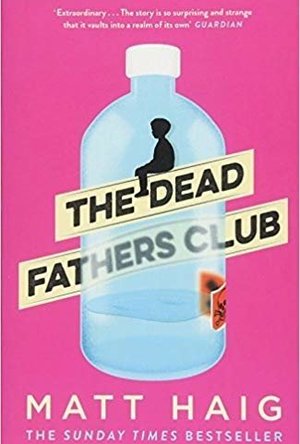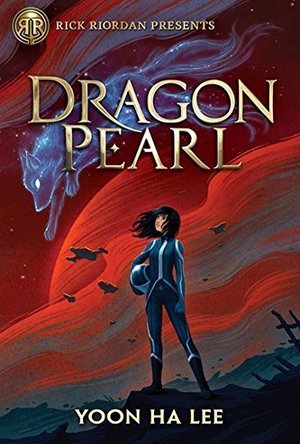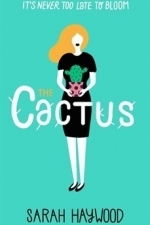Search
Search results
SAS- Red Notice
TV Show
SAS: Red Notice (also known as SAS: Rise of the Black Swan) is a 2021 action thriller film directed...

Sharpe's Enemy (1994)
Movie
TV movie based on the Bernard Cornwell novel of the same name, in which Sharpe is entrusted with...
Merissa (13782 KP) created a post
Mar 27, 2024
Molly J (Cover To Cover Cafe) (106 KP) rated Starting From Scratch in Books
Feb 25, 2019
After reading A Letter From Lancaster County and loving it, I knew I had to get my hands on this book. I was so excited when I got that chance! Don't get me wrong, when it comes to Amish Fiction, I'm very picky. With favorites like Wanda Brunstetter, Beverly Lewis and Amy Clipston, I have high expectations when it comes to well written, inspiring simple lives of the Amish variety. Ms. Lloyd is right up there with them and I loved every second of this page-turning, scrumptiously written, novel.
The characters within this novel are chiseled flawfully and beautifully. Jake and Eva remind me a lot of my own husband and myself. We both had a rough go for many years, and after meeting each other, and seeking God, we got to start over with each other, start from scratch and create a beautiful life together. Eva and Jake are captivating both alone in their stories, and when they are together. Watching them come to terms with their need to seek God in all they do, and for their need to start over and move on from the past, really tugged at my emotions.
Ms. Lloyd is truly talented. This novel is so worthy of the 5 star praises I'm singing to people. This book will wrap you up, twist you inside out, and land you in a place that only God can prepare for you. The inspiration that Ms. Lloyd pieces into the pages is beyond amazing and before I knew it, I was done with this novel. I can't wait for another fantabulously done, awesometastic Amish story in this incredible series! Well done, and hats off to you, Ms. Lloyd! Bring on the next!
*I received a complimentary copy of this book from the publisher and was under no obligation to post a review, positive or negative.*
The characters within this novel are chiseled flawfully and beautifully. Jake and Eva remind me a lot of my own husband and myself. We both had a rough go for many years, and after meeting each other, and seeking God, we got to start over with each other, start from scratch and create a beautiful life together. Eva and Jake are captivating both alone in their stories, and when they are together. Watching them come to terms with their need to seek God in all they do, and for their need to start over and move on from the past, really tugged at my emotions.
Ms. Lloyd is truly talented. This novel is so worthy of the 5 star praises I'm singing to people. This book will wrap you up, twist you inside out, and land you in a place that only God can prepare for you. The inspiration that Ms. Lloyd pieces into the pages is beyond amazing and before I knew it, I was done with this novel. I can't wait for another fantabulously done, awesometastic Amish story in this incredible series! Well done, and hats off to you, Ms. Lloyd! Bring on the next!
*I received a complimentary copy of this book from the publisher and was under no obligation to post a review, positive or negative.*
Molly J (Cover To Cover Cafe) (106 KP) rated Where the Fire Falls (Vintage National Parks, #2) in Books
Feb 27, 2019
Ms. Barnett is back and she's done it again! Another fabulous park mystery with amazing characters and a twisty plot line, all filled with God's grace! I loved this one as much as the first one and I am so glad I read it!
Ms. Barnett takes us to the heart of Yosemite during the '20s. It was such a fun time getting to know the world back then, along with being introduced to Olivia and Clark. Both had decisions to make, both knew there was a lot at stake. Watching them throughout this novel was not only interesting, it was a fresh of breath air! I became a part of the story and loved feeling as though I was right there next to them! My son's grandparents travel the United States in their RV and visit some of the National Parks and I've heard them tell some great things, but they don't describe near like Ms. Barnett does! She truly is wonderful with her character creations and her descriptions!
This is definitely a 4.5 star worthy novel! Clark and Olivia come to life with each page turn, the romance is tender and the messages of truth and accepting God's will are strong through the entire story. From start to finish, Ms. Barnett had me hooked, and I never lost interest! If you are looking for a fun novel that will transport you back in history, then this is a novel just for you. Ms. Barnett's writing style will captivate you and you'll become a fan for life! I can't wait for book 3!!! Well done, Ms. Barnett!
*I received a complimentary copy of this book from the publisher and was under no obligation to post a review, positive or negative.*
Ms. Barnett takes us to the heart of Yosemite during the '20s. It was such a fun time getting to know the world back then, along with being introduced to Olivia and Clark. Both had decisions to make, both knew there was a lot at stake. Watching them throughout this novel was not only interesting, it was a fresh of breath air! I became a part of the story and loved feeling as though I was right there next to them! My son's grandparents travel the United States in their RV and visit some of the National Parks and I've heard them tell some great things, but they don't describe near like Ms. Barnett does! She truly is wonderful with her character creations and her descriptions!
This is definitely a 4.5 star worthy novel! Clark and Olivia come to life with each page turn, the romance is tender and the messages of truth and accepting God's will are strong through the entire story. From start to finish, Ms. Barnett had me hooked, and I never lost interest! If you are looking for a fun novel that will transport you back in history, then this is a novel just for you. Ms. Barnett's writing style will captivate you and you'll become a fan for life! I can't wait for book 3!!! Well done, Ms. Barnett!
*I received a complimentary copy of this book from the publisher and was under no obligation to post a review, positive or negative.*
Sam (74 KP) rated The Dead Fathers Club in Books
Mar 27, 2019
Philip’s father has just died in a car crash, but he doesn’t think it was an accident. His father’s ghost comes back and tells him that he must have been murdered because he is part of the Dead Fathers Club – just for murdered fathers. He tells Philip that it must have been his Uncle Alan who murdered him, and tells him that he must get revenge.
In an odd take on Hamlet, The Dead Fathers Club follows Philips hunt for revenge for the death of his father.
It’s definitely a disturbing read. Philip is a young boy whose father has just died unexpectantly, and now he sees his father’s ghost, telling him to do awful things, to the point where he is listing ways he could kill his uncle.
The novel is written like it was Philips diary, so the childish grammar with the disturbing thoughts that Philip is experiencing work together to create a definitely troubling novel.
I was definitely questioning Philip’s mental health throughout the novel and wondering whether his father’s ghost was all in his imagination or it was actually happening.
Philip is a misfit with no friends, a girlfriend in part of the novel (which I’m not too sure what that did to the plot) and he’s bullied constantly. He found comfort in the fact that he had the chance to change his own life. He knew he could kill his uncle if he tried, and he saw that as the only way ahead. In killing his uncle, he would get revenge for his father’s death and stop his father from suffering and finally send him to heaven. He could get everything he needed and at the same time feel like he had a friend in his father’s ghost.
It was definitely a good read, but a big change to Matt Haig’s usual writing style.
In an odd take on Hamlet, The Dead Fathers Club follows Philips hunt for revenge for the death of his father.
It’s definitely a disturbing read. Philip is a young boy whose father has just died unexpectantly, and now he sees his father’s ghost, telling him to do awful things, to the point where he is listing ways he could kill his uncle.
The novel is written like it was Philips diary, so the childish grammar with the disturbing thoughts that Philip is experiencing work together to create a definitely troubling novel.
I was definitely questioning Philip’s mental health throughout the novel and wondering whether his father’s ghost was all in his imagination or it was actually happening.
Philip is a misfit with no friends, a girlfriend in part of the novel (which I’m not too sure what that did to the plot) and he’s bullied constantly. He found comfort in the fact that he had the chance to change his own life. He knew he could kill his uncle if he tried, and he saw that as the only way ahead. In killing his uncle, he would get revenge for his father’s death and stop his father from suffering and finally send him to heaven. He could get everything he needed and at the same time feel like he had a friend in his father’s ghost.
It was definitely a good read, but a big change to Matt Haig’s usual writing style.
Sam (74 KP) rated The Things We Learn When We're Dead in Books
Mar 27, 2019
Lorna Love is dead. After an evening out at a dinner party, she stumbles into the road in front of an oncoming car and is killed.
She finds herself on a spaceship called HVN, where she can do what she wants, be anyone she wants, and have anything she wants. The novel follows Lorna looking back on her life while she is in ‘heaven’, going through every decision and mistake she’s made.
I’m a bit unsure of what genre I would place this in as it’s both science fiction and general fiction. Only a small fraction of the novel takes place on the spaceship, the majority of it is Lorna looking back on her life. However, I feel like the science fiction element overcomes everything, but I don’t want to spoil the plot by going into too much detail about that.
Charlie Laidlaw sent me a copy of his novel in return for an honest review. If it wasn’t for him offering to send me the novel, I don’t think I would have been tempted to read it. Since I’m not usually a fan of sci-fi, the cover was definitely offputting because of the spaceship. But having read it now and knowing that the majority of the book wasn’t even set in space, I’m really glad I did read it.
The Things We Learn When We’re Dead is heartwarming and is completely different from everything I’ve read before. It’s such an original idea for a book and although, to begin with, I did struggle to get into the book, I’m glad I held on because it really was an enjoyable book.
Lorna is a brilliant protagonist as she’s believable. She has her own faults and problems and definitely isn’t a perfect character. I loved that she was so realistic and not a fake persona.
She finds herself on a spaceship called HVN, where she can do what she wants, be anyone she wants, and have anything she wants. The novel follows Lorna looking back on her life while she is in ‘heaven’, going through every decision and mistake she’s made.
I’m a bit unsure of what genre I would place this in as it’s both science fiction and general fiction. Only a small fraction of the novel takes place on the spaceship, the majority of it is Lorna looking back on her life. However, I feel like the science fiction element overcomes everything, but I don’t want to spoil the plot by going into too much detail about that.
Charlie Laidlaw sent me a copy of his novel in return for an honest review. If it wasn’t for him offering to send me the novel, I don’t think I would have been tempted to read it. Since I’m not usually a fan of sci-fi, the cover was definitely offputting because of the spaceship. But having read it now and knowing that the majority of the book wasn’t even set in space, I’m really glad I did read it.
The Things We Learn When We’re Dead is heartwarming and is completely different from everything I’ve read before. It’s such an original idea for a book and although, to begin with, I did struggle to get into the book, I’m glad I held on because it really was an enjoyable book.
Lorna is a brilliant protagonist as she’s believable. She has her own faults and problems and definitely isn’t a perfect character. I loved that she was so realistic and not a fake persona.
Sophia (Bookwyrming Thoughts) (530 KP) rated Dragon Pearl in Books
Jan 23, 2020
<b><i>I received this book for free from Disney-Hyperion in exchange for an honest review. This does not affect my opinion of the book or the content of my review.</b></i>
<i>Dragon Pearl</i> by Yoon Ha Lee is the latest in Rick Riordan Presents, an imprint under Disney that “highlights cultures and mythologies from around the world,” selected by author Rick Riordan. An #ownvoices novel based on Korean mythology and folklore, Lee’s novel follows a fox spirit named Min who runs off on a space adventure to find her missing brother and instead finds the highly sought-after Dragon Pearl to save the Thousand Worlds.
I found myself struggling with <i>Dragon Pearl</i> at times. There are moments the novel slows from the pace of the action, which could potentially drag the reader’s attention away from Min’s journey. Min’s quest to find her brother is easy, but it is expected as the novel is aimed at a middle-grade audience.
Ignore the slowness and the ease of the journey, however, and the story is a magical ride through the Thousand Worlds. I loved seeing Min encountering obstacles and working her way around them while figuring out her own magic. Most importantly, I enjoyed seeing how valuable her relationships are, both with her brother and with the developing friendships with the other cadets.
Fans of Rick Riordan’s novels who enjoy a journey through space with touches of mythology will love going on an adventure of their own with Min through Yoon Ha Lee’s <i>Dragon Pearl</i>.
<a href="https://60secondsmag.com/dragon-pearl-review/">This review is originally posted on 60 Seconds Online Magazine</a>
<i>Dragon Pearl</i> by Yoon Ha Lee is the latest in Rick Riordan Presents, an imprint under Disney that “highlights cultures and mythologies from around the world,” selected by author Rick Riordan. An #ownvoices novel based on Korean mythology and folklore, Lee’s novel follows a fox spirit named Min who runs off on a space adventure to find her missing brother and instead finds the highly sought-after Dragon Pearl to save the Thousand Worlds.
I found myself struggling with <i>Dragon Pearl</i> at times. There are moments the novel slows from the pace of the action, which could potentially drag the reader’s attention away from Min’s journey. Min’s quest to find her brother is easy, but it is expected as the novel is aimed at a middle-grade audience.
Ignore the slowness and the ease of the journey, however, and the story is a magical ride through the Thousand Worlds. I loved seeing Min encountering obstacles and working her way around them while figuring out her own magic. Most importantly, I enjoyed seeing how valuable her relationships are, both with her brother and with the developing friendships with the other cadets.
Fans of Rick Riordan’s novels who enjoy a journey through space with touches of mythology will love going on an adventure of their own with Min through Yoon Ha Lee’s <i>Dragon Pearl</i>.
<a href="https://60secondsmag.com/dragon-pearl-review/">This review is originally posted on 60 Seconds Online Magazine</a>
Awix (3310 KP) rated War of the Worlds: Global Dispatches in Books
Feb 3, 2020
Diverse collection of short stories all revisiting the Martian invasion of 1898 (as originally detailed by H.G. Wells). Most (but not all) of the stories are narrated by notables from the period, most (but not all) of these are famous writers: Henry James, Samuel Clemens, Rudyard Kipling, and so on. The collection kind of overlooks the implication that the Martians only actually invade southern England in Wells' novel, but then most adaptations do the same thing, and the stories here aren't even consistent with each other (the fate of Paris varies significantly in the Jules Verne and Pablo Picasso entries).
A bit of a mixed bag, to be honest: some of the stories just restage elements of Wells with a different backdrop, others treat the Martians as a backdrop for more introspective tales, still others indulge in literary pastiche. Unlikely juxtapositions and in-jokes abound - Rudyard Kipling meets Gandhi, Tolstoy meets Stalin, Samuel Clemens (d. 1910) makes reference to John Christopher (b. 1922). The best stories are mostly the ones which recognise the political/satirical subtext powering the Wells novel and attempt to do something similar - so Barbara Hambly's story concerns British imperialism in India, and the effect of the Martians on the situation there, while another looks at the consequences for pre-revolutionary Russia. That said, Connie Willis' Hugo-winning contribution sends the whole conceit of the novel up with a predictable mixture of tongue-in-cheek drollery and sheer absurd silliness, as the unlikely effect of a Martian encounter on the poetry of Emily Dickinson is revealed (especially considering Dickinson died twelve years before the coming of the Martians). The good stories are very good indeed, the less good ones merely a bit tedious. A worthy and worthwhile tribute to the original novel.
A bit of a mixed bag, to be honest: some of the stories just restage elements of Wells with a different backdrop, others treat the Martians as a backdrop for more introspective tales, still others indulge in literary pastiche. Unlikely juxtapositions and in-jokes abound - Rudyard Kipling meets Gandhi, Tolstoy meets Stalin, Samuel Clemens (d. 1910) makes reference to John Christopher (b. 1922). The best stories are mostly the ones which recognise the political/satirical subtext powering the Wells novel and attempt to do something similar - so Barbara Hambly's story concerns British imperialism in India, and the effect of the Martians on the situation there, while another looks at the consequences for pre-revolutionary Russia. That said, Connie Willis' Hugo-winning contribution sends the whole conceit of the novel up with a predictable mixture of tongue-in-cheek drollery and sheer absurd silliness, as the unlikely effect of a Martian encounter on the poetry of Emily Dickinson is revealed (especially considering Dickinson died twelve years before the coming of the Martians). The good stories are very good indeed, the less good ones merely a bit tedious. A worthy and worthwhile tribute to the original novel.
Veronica Pena (690 KP) rated The Cactus in Books
Jan 17, 2020
I'm genuinely surprised at how much I enjoyed this book. At the start of this novel, I hated Susan. Like I firmly wanted to punch her square in the face. I thought she was annoying, self-righteous, stuck on her high horse, just rude. I can't say that that changed much over the course of the novel, but the light in which she was shaded in changed. As you move through the story and you learn about her life, who she is and where she came from, her relationship with her mother before her death and after, it becomes apparent that her coldness, her vehement desire to push people away, and her intensity for control are all coping mechanisms stemmed from her childhood. I related a lot to Susan, even though I found myself wanting to scream at her in some parts of the book.
As for the story itself, the plotline, the characters, I really thought it was well put together. The twist towards the end and even the ending itself wasn't one that I thought of when I initially started reading or even as I made it to the halfway point and beyond. It wasn't a novel that kept me on the edge of my seat, by any means, but it was one that just pulled you in and you were encompassed in Susan's world - in her thoughts, however rude they might be. I relate a lot to who she was and who she becomes and I was surprised to find myself rooting for her by the end, even as I, again, wanted to punch her. I also appreciated that not every conflict needed to be wrapped up in a bow and solved. That's not real life and this book felt like real life.
A debut novel, well done.
As for the story itself, the plotline, the characters, I really thought it was well put together. The twist towards the end and even the ending itself wasn't one that I thought of when I initially started reading or even as I made it to the halfway point and beyond. It wasn't a novel that kept me on the edge of my seat, by any means, but it was one that just pulled you in and you were encompassed in Susan's world - in her thoughts, however rude they might be. I relate a lot to who she was and who she becomes and I was surprised to find myself rooting for her by the end, even as I, again, wanted to punch her. I also appreciated that not every conflict needed to be wrapped up in a bow and solved. That's not real life and this book felt like real life.
A debut novel, well done.
